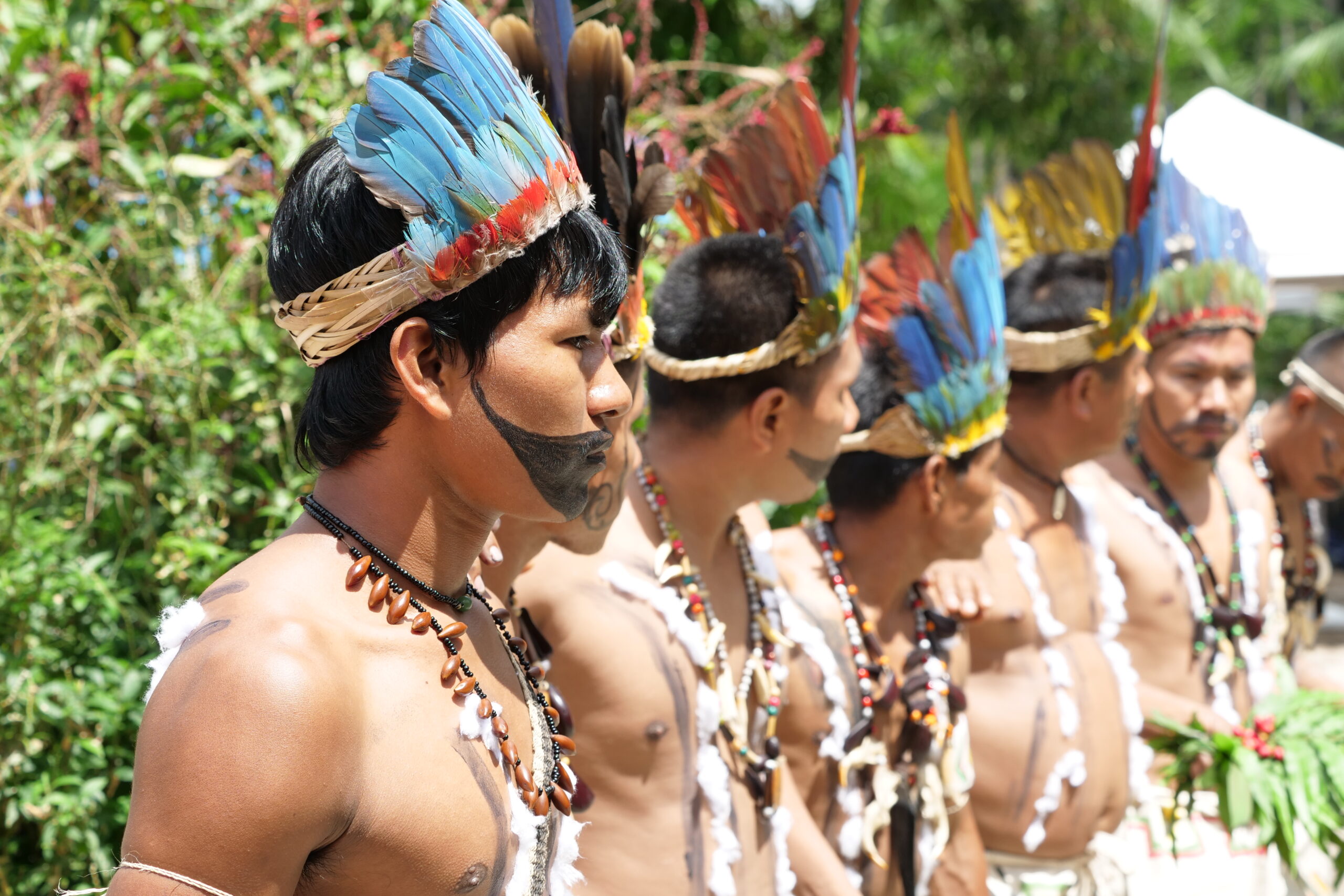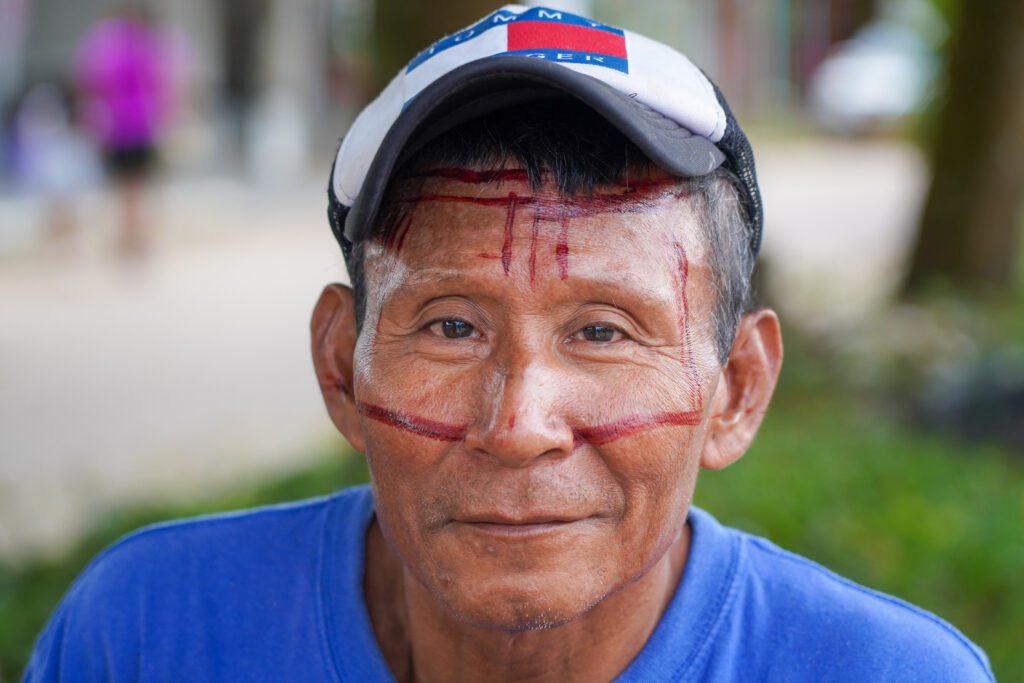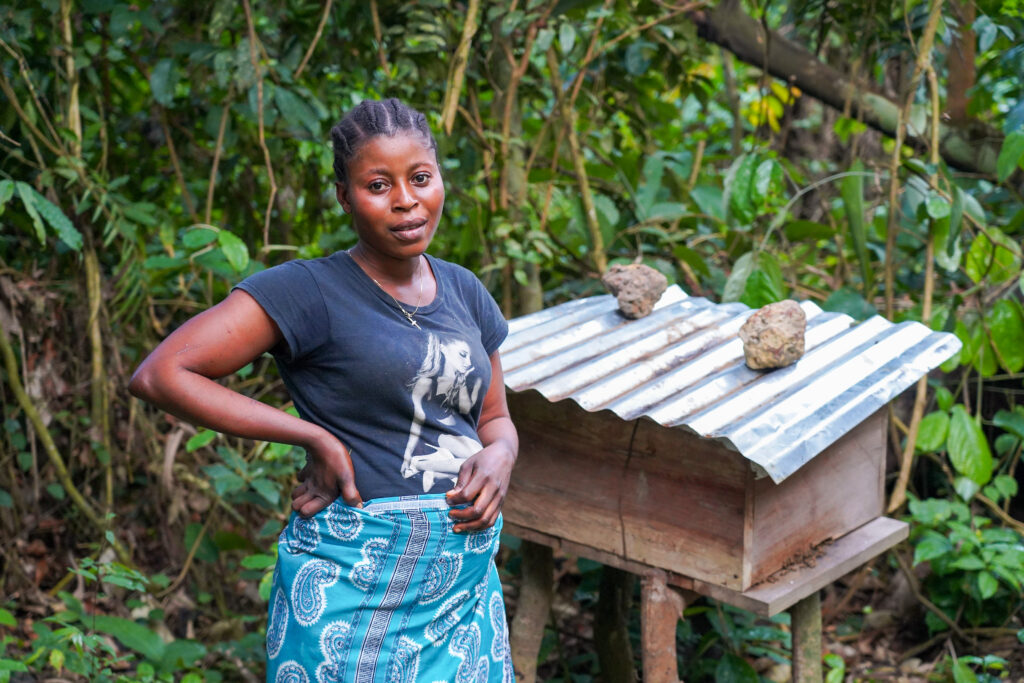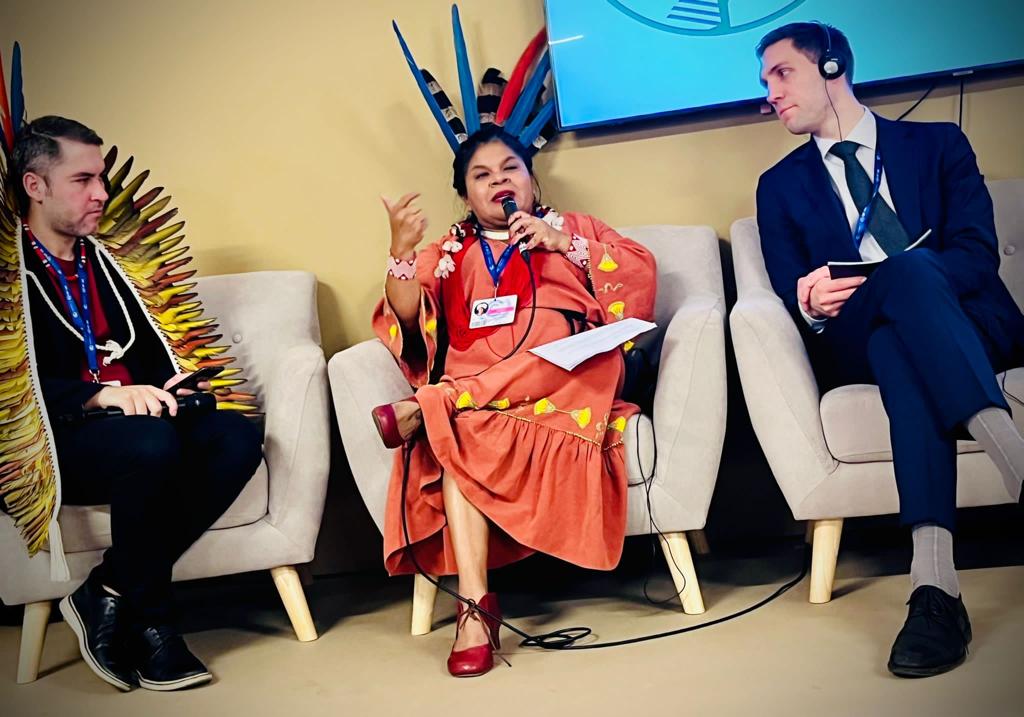
Indigenous Peoples rights
and role as forest guardians
The rainforest and other ecosystems is home to millions of Indigenous Peoples. While they make up little more than 6% of the world’s population, they manage nearly 25% of the world’s land, which in turn hosts 80% of landbased biodiversity.
Indigenous Peoples are the best guardians of the forest. Where their rights to manage their forests are recognized, there is substantially less deforestation, higher levels of biodiversity and less conflict than in other areas.
Norway has since 2008 been one of the world’s largest donors to Indigenous Peoples. Recognizing their rights and role in the management of tropical forests and other ecosystems is critical to slow down global warming and nature loss.
 Photo: Marte Lid, Norad
Photo: Marte Lid, Norad
Over the last 30 years, Indigenous Peoples’ rights have been increasingly recognized at the global level. At the climate summit in Glasgow in 2021, parties committed to end deforestation by 2030. They also recognized how Indigenous Peoples as well as other forest dependent communities are key to achieve this goal.
Until recently, very little climate and biodiversity finance has reached Indigenous Peoples and other forest dependent communities. At the Climate Change Conference in Glasgow (COP26), Prime Minister Støre, along with a number of other donors, pledged 1,7 billion USD to secure land and resource rights of Indigenous Peoples as well as other forest dependent communities. This includes channeling more funds directly to their organizations, while using intermediary organizations accountable to Indigenous Peoples and other forest dependent communities more strategically.
In extension of the pledges made at COP26, several countries committed to pursue action at national and political level through the high ambition coalition Forest and Climate Leaders Partnership.
 Photo: Marte Lid/Norad
Photo: Marte Lid/Norad
Five essential conditions
Indigenous peoples and local communities managing tropical forests have stated there are five necessary conditions for them to continue protecting the world’s tropical forests:
- Access to our territories to protect them and live according to self-determination.
- Full respect of the right to free, prior, and informed consent.
- Direct access to climate finance.
- An end to the violence and criminalization of indigenous peoples.
- Incorporation of traditional knowledge in climate change strategies.
Our strategy
Beyond support to tropical forest country efforts to protect Indigenous Peoples’ rights and livelihoods through forest governance and tenure reforms, we work to give Indigenous Peoples and other forest dependent communities a voice in the international community, in the global nature and climate negotiations. We support:
- UN Human Rights Council resolutions in support of environmental human rights defenders, as well as more effective protection of environmental human rights defenders at national level through the Forest and Climate Leaders Partnership.
- Programs to secure land and forest tenure rights for Indigenous Peoples and other forest dependent communities in partner countries.
- In extension of the Norwegian Government’s policy on Indigenous Peoples and minorities in Norway, we work closely with the Saami Parliament and the Saami Council, to support Indigenous Peoples’ active participation in global biodiversity and climate talks.
- The participation of Indigenous Peoples and other forest dependent communities in national policy processes and in decisions that affect them, such as National Biodiversity Strategy and Action Plans and Nationally Determined Contributions to the Paris Agreement.
- Support Indigenous Peoples and other forest dependent communities’ access to climate and biodiversity finance, as well as effective, rights-based participation in high integrity forest carbon markets.
- Donor coordination towards increased and more direct support to Indigenous Peoples and forest dependent communities, through the Forest Tenure Funders Group .

